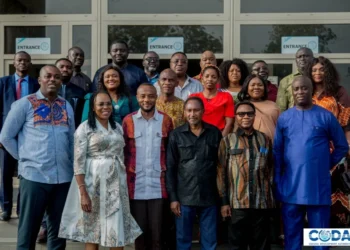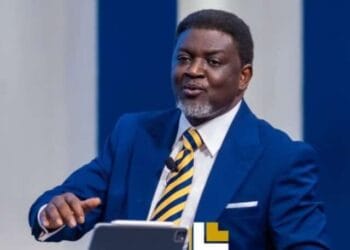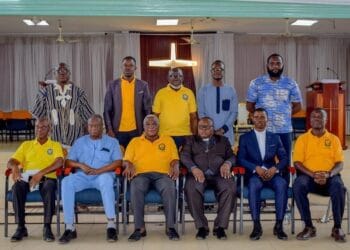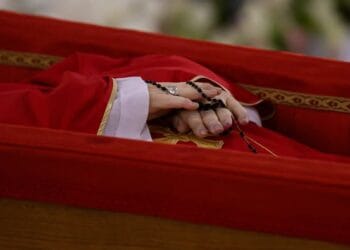A growing number of Britons are returning to church, not out of newfound belief in Christ, but out of fear that Christianity is losing ground to Islam in the United Kingdom. For people like 36-year-old Gareth Talbot from Bradford, the move back to church has little to do with spiritual awakening and everything to do with cultural anxiety.
Gareth admits he does not believe he has “found God,” nor does he consider himself newly religious. Yet, after joining a rally organised by far-right figure Tommy Robinson in September, he says he felt compelled to reconnect with the church he last attended as a child.
Get more exclusive breaking news updates on our WhatsApp channel .
“I never thought I had to choose before, but now I’m feeling like Christianity could be replaced,” he says. “That’s why I feel the church needs support.”
He insists his concerns are rooted in what he describes as “extreme elements” of Islam, not the religion as a whole. But he repeats claims, such as Christmas markets being renamed in London and parts of the UK becoming “fully Muslim” – that are widely circulated in online spaces yet often unverified or exaggerated.
To him, the issue is not worship but identity. “It’s not that I’ve found God. It’s always been the Christian religion that’s kept our values and freedoms. That’s why I need to support it now.”
A Church Caught Between Two Worlds
For clergy such as the Reverend Derek Jones of Little Horton, where Gareth has returned, this trend presents a challenge. He welcomes Gareth into the congregation, but he also recognises the complex motivations behind the return.
“There are times I question whether some of these movements fully understand the gospel they are seeming to walk behind,” he says. “My gut feeling is it’s more about identity than faith.”
The Church of England has spent decades grappling with declining attendance, rising secularisation, and increasing religious diversity. Now it finds itself navigating a new dilemma: how to respond when people come through its doors primarily because they fear another religion, not because they seek Christianity.
Christian Symbols at Far-Right Rallies
Robinson’s “Unite the Kingdom” rally in London drew between 110,000 and 150,000 people, according to estimates. Many carried wooden crosses, banners with Bible verses, or wore crusader outfits — imagery that left many church leaders deeply concerned.
Several bishops condemned what they called the “co-opting of the cross” for division, warning that the symbol of Christian sacrifice was being used to exclude others rather than welcome them.
Former Archbishop of Canterbury Rowan Williams echoed the criticism, urging Christians to see migrants and Muslims as “vulnerable people just like them.”
A Deepening Divide
The trend has exposed sharp divisions within British Christianity. Some clergy argue the Church must confront what they describe as “Christian nationalist” sentiment. Others, like Bishop Ceirion Dewar of the small Confessing Anglican Church, defend those who feel Christianity is under threat.
He led a prayer at Robinson’s rally and says thousands there sincerely believe Britain’s Christian roots are being eroded. In his view, clergy must “get into the streets and listen to their concerns,” rather than lecture them.
This is in stark contrast with other Christian communities that express their faith by supporting asylum seekers, including migrants who have fled persecution in Muslim-majority countries.
The Bigger Question
As cultural tensions rise, senior church leaders are preparing to meet early next year to discuss “national unity and diversity,” recognising that the institution faces one of its most difficult identity questions in decades.
At its core is a simple but uncomfortable truth: many people returning to church are not seeking Christ, grace, or theological truth. They are seeking security, belonging, and a sense of defence against a perceived cultural shift in Britain.














